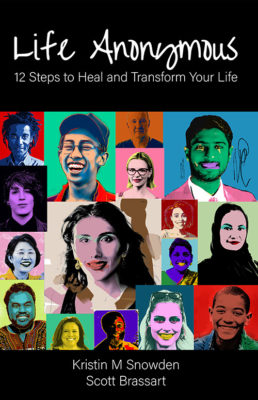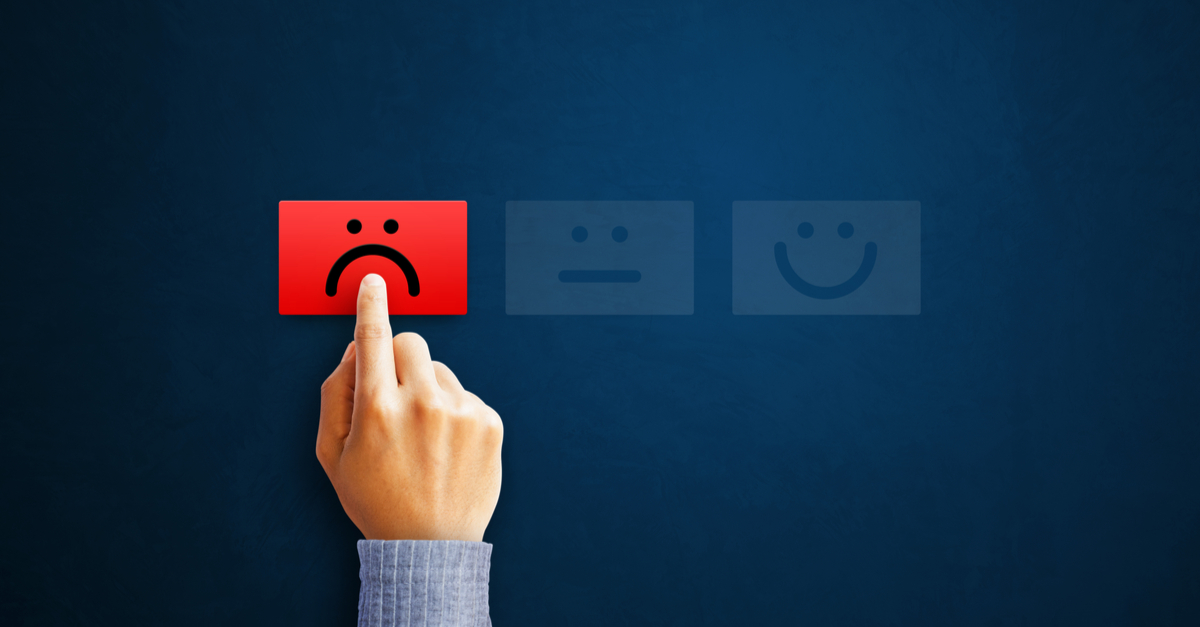 Scott Brassart
Scott Brassart
Like many addicts, I entered recovery with what psychologists refer to as a negativity bias. This means I spent most of my time thinking about and looking for the downside of every person, place, and situation. Is it any wonder I was depressed and anxious? Is it any wonder I consistently found myself turning to addictive substances and behaviors to feel better?
Of course, I wasn’t actually using and acting out to feel better. I was doing it to feel less. In fact, to feel nothing. That was my goal: total numbness. I wanted to literally be out of my head, to escape my thoughts and my ever-present feelings of stress, shame, and imminent destruction. Alcohol, drugs, and sex were my road to emotional oblivion.
For a long time, these (ultimately maladaptive) coping mechanisms worked for me. But then my addictions escalated – more booze, more drugs, and more (and more intense) sexual behaviors. Plus consequences. For the most part, I either threw money at or completely ignored my consequences, and I would probably still be doing that if not for the fact that my addictions eventually stopped working. I was no longer able to escape unwanted thoughts and feelings. It didn’t matter how much booze or drugs I ingested, how much porn I looked at, or how many people I had sex with. I was still miserable.
 So I stopped drinking, stopped using, and stopped acting out sexually. And with that, I assumed my life would immediately get better in every facet and phase.
So I stopped drinking, stopped using, and stopped acting out sexually. And with that, I assumed my life would immediately get better in every facet and phase.
No such luck.
My addictive behaviors were out of the picture, but I was still in it. And I was an unhappy, fearful, and painfully brazen liar and keeper of secrets. I maintained my façade of normalcy and happiness – keeping my job, paying my bills, and telling everyone who would listen how great my life was – but behind the wall with the smile painted on it, I was miserable and felt like I would always be miserable.
Even when I was being funny and laughing, I was miserable. In fact, I remember one day in early recovery after a 12-step meeting during which I’d spent more time entertaining the people around me with snarky comments than trying to recover, a fellow newbie said, “Oh my God, you’re so effing funny. You’re just like Chelsea Handler.”
At the time, I took this as a supreme compliment. After all, Chelsea Handler had a smash hit TV show (on which she absolutely ripped everyone and everything in her path). She was cruel, vicious, and without remorse. Just like me.
For my first year or so of recovery, I wore my snarky, negative demeanor like a badge of honor. I actually looked for ways to shred other people – occasionally to their face, but usually behind their backs. Often, these were the people I should have been listening to the most because they were staying sober and enjoying their lives.
Me? I was mean and nasty and constantly relapsing. I was also afraid to tell anyone the truth about my feelings and my lack of sobriety.
So, what happened? Well, for reasons I still can’t quite fathom, I stuck with recovery. I continued to go to therapy, both individual and group, and I continued to attend 12-step meetings. And somewhere along that path I noticed that a lot of the people around me were not only staying sober, they were smiling and behaving as if they genuinely liked both themselves and their fellows.
Eventually, after enough therapy sessions and 12-step meetings, I realized that lasting sobriety was possible – even for me – and that enjoyment of life was also possible. I also realized that these weird, smiling, seemingly happy people (often the people I’d been eviscerating with my jokes) knew how to make that happen for me, too. So, I (slowly) stopped making snarky jokes about them and started listening to them. They had what I wanted so I followed their lead, trying to do what they did. Occasionally, I even took direct advice from them.
Over time, mostly based on the direct advice of these patient, persistent guides, my negativity bias lessened and I became a more positive person. I wasn’t especially aware of that change until my third year of recovery (and my first full year of real sobriety) when I went to see Chelsea Handler perform her stand-up comedy routine and found the entire show to be angry, mean, and not at all funny.
Chelsea Handler had not changed during my sojourn into recovery. I had. My negativity bias had (mostly) disappeared. More importantly (and directly linked, I believe), I was staying sober.
* * * * * * * * * *
If you or someone you care about is struggling with sex or porn addiction, help is available. For porn addicts, Seeking Integrity offers a low-cost online workgroup series. Click HERE for information. We offer a similar workgroup series for sex addicts. Click HERE for information.
